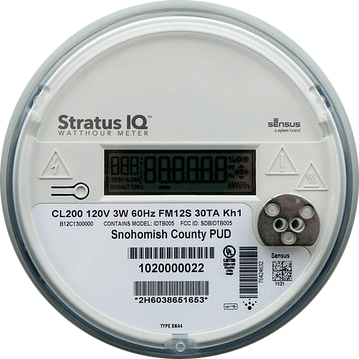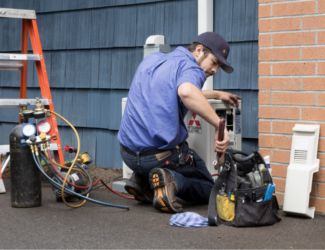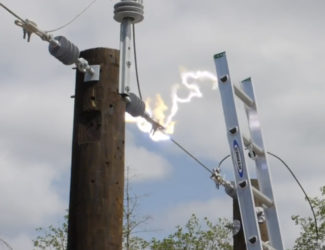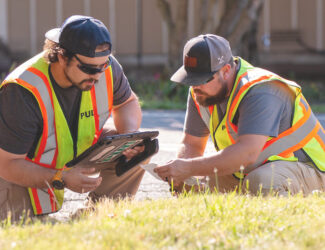
Solar & net metering
May 2024: an important net metering bill update
Washington state’s net metering policy is designed to let customer-generators offset their electricity consumption with energy production on an annual basis.
If you use more energy than you produce during a given bill period, you pay the PUD for your net purchase. If you produce more energy than consumption associated with minimum energy charges within a given bill period, your net excess generation is monetized and banked in your net metering reserve. All PUD customers pay a minimum energy charge – solar cannot offset this.
The net metering reserve allows you to roll over credit from net metering to apply to energy charges in another bill period. Per state law, net metering reserve credit expires on March 31 of each year. The PUD does not compensate customers this excess generation, and customers may not “donate” their generation to other PUD customers. This is why we recommend you size your PV system to generate no more than your average annual use.
For questions, contact the PUD Energy Hotline at 425-783-1700.
Click here to view a sample of a solar bill
 Have you received your advanced meter?
Have you received your advanced meter?
If so, it’s easy to check your net metering and much more. Click here to learn the details. (You can tell if your meter has been updated if it says “Stratus IQ” on the front). To learn more about meter upgrades, visit snopud.com/connectup.
Federal tax credits
Congress passed an extension of the Investment Tax Credit (ITC), raising the tax credit to 30% for solar systems installed between 2022-2032. (Systems installed on or before December 31, 2019, were also eligible for a 30% tax credit.) It will decrease to 26% for systems installed in 2033 and to 22% for systems installed in 2034. The tax credit expires starting in 2035 unless Congress renews it. There is no maximum amount that can be claimed. (Sources: IRS.gov & Energy.gov Homeowner’s Guide to the Federal Tax Credit for Solar Photovoltaics)
To learn about Washington State sales tax exemption from the Washington State Department of Revenue, view sales and use tax exemption on purchases and installation of solar energy systems.
Please contact your tax accountant for further information.
Washington State Renewable Energy System incentive program
As of June 14, 2019, the Renewable Energy System incentive program is no longer accepting new applications.
For existing PUD solar customers who are a part of the Renewable Energy System incentive program, we report production data to Washington State University. Here’s a high-level timeline of how that process works:
- June: PUD collects normal meter reads for all customers
- July: Upload June 30 read to MV90, an interval data collection tool
- August: By mid-month, PUD provides production data for all solar customers to WSU
- October: WSU provides PUD with a list of incentive payments for all eligible solar customers
- December: PUD issues payments in check form, which arrive to customers by mid-month in the mail
To learn more, visit the Washington State University Energy Program.







